|
|
|
|
Back in the carefree days of early January 2020, when a spat among the royal family dominated the headlines, I noticed a short article on a newswire about a man in Wuhan, China, who had died of pneumonia, caused by a “yet to be identified virus”. He was one of 41 people to have caught the mystery virus. It piqued my interest and I knew just the person to write about it: a virologist at Queen’s University Belfast called Connor Bamford.
We published that first article on the “novel coronavirus” on January 13 2020. A year on and nearly 2 million deaths later, Connor reflects on what we have learned – and what we still desperately need to learn – about SARS-CoV-2, the virus that changed the world.
If the past year has taught us anything, it’s the value of science and scientists – experts are now back in vogue. Who would have thought that in less than a year, we’d have not one but a range of highly effective vaccines against the coronavirus? (The previous record time to develop a vaccine was four years, for mumps.) Now we face the daunting task of getting everyone vaccinated – while new variants continue to emerge, including the latest from Brazil. In a new weekly series, Rob Reddick, one of our specialist COVID-19 editors, brings you the latest reports on the COVID vaccines.
Elsewhere, new research reveals companies are buying carbon credits from long completed solar and wind farms that do little to offset today’s emissions. And we discover how to learn a foreign language
by watching films and TV shows.
|
Clint Witchalls
Health + Medicine Editor (UK edition)
|

|
|
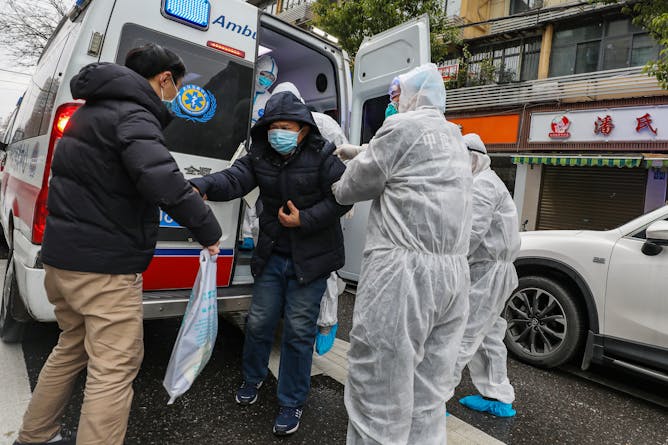
Staff help a patient off the ambulance outside the hospital in Wuhan, China, January 2020.
Yuan Zheng/EPA
Connor Bamford, Queen's University Belfast
The Conversation first reported on the novel coronavirus on January 13 2020. A virologist reflects on what happened since he first wrote that article.
|
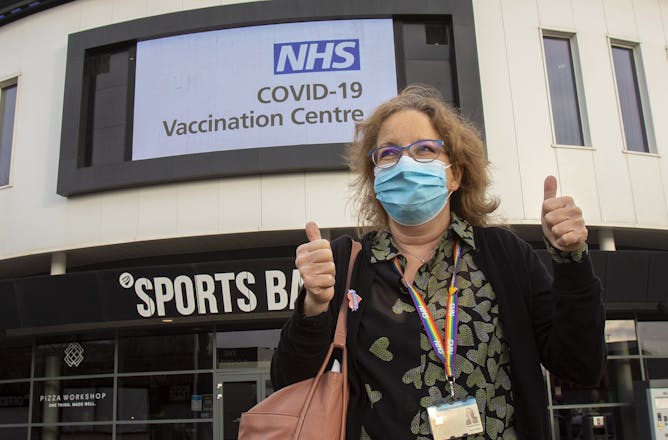
A woman reacts after receiving the vaccine outside the Ashton Gate stadium in Bristol, which has become a COVID-19 vaccination centre.
EPA-EFE
Rob Reddick, The Conversation
In our first weekly update on COVID vaccines, we consider how roll-out plans are being tweaked and when it's likely we'll start to see vaccines having an impact.
|
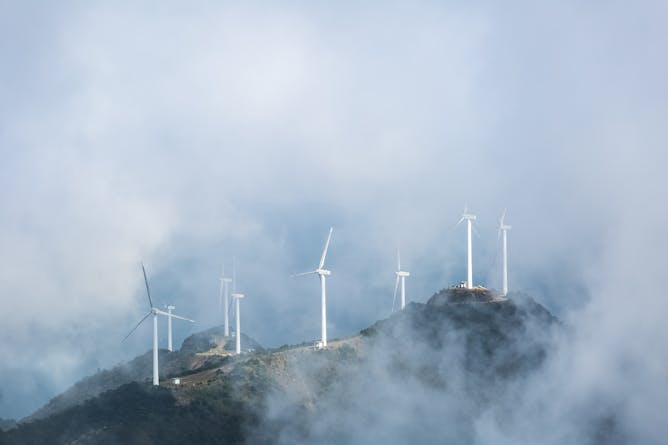
chuyuss / shutterstock
Mark Maslin, UCL; Simon Lewis, UCL
Companies are using these credits to offset their emissions, though many projects won't meaningfully reduce carbon in the atmosphere.
|
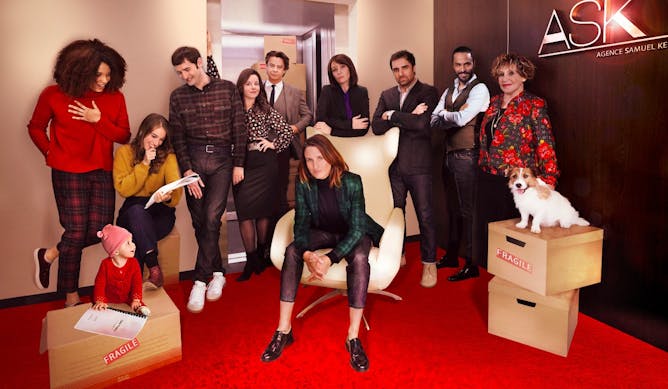
The Cast of Dix pour cent.
Christophe Brachet/Netflix
Neophytos Mitsigkas, University of Essex
Watching a foreign film or TV show doesn't automatically teach you the language – but there are ways to make it stick.
|
Health + Medicine
|
-
Hazel Flight, Edge Hill University
The importance of diet to a child's development cannot be overstated.
-
Kieran Ayling, University of Nottingham; Kavita Vedhara, University of Nottingham
Almost half of NHS critical care staff suffered mental health issues in summer – now the situation is worse.
-
Caitjan Gainty, King's College London; Agnes Arnold-Forster, University of Bristol
Too much hope is being pinned on the vaccine alone to get us out of the current pandemic. But 'low-tech' solutions are needed, too.
|
|
Business + Economy
|
-
Billy Melo Araujo, Queen's University Belfast
Queues at borders, suspended deliveries, empty shelves: the EU-UK Trade Cooperatiion Agreement is not quite what it seemed in the brochure.
-
Natasha Hirst, Cardiff University; Debbie Foster, Cardiff University
The most commonly requested, and rejected, reasonable adjustment is now widespread in many organisations. But does working from home really remove barriers for disabled people?
-
Hamza Mudassir, Cambridge Judge Business School
Tela has a lot more going for it than just its electric cars. VW must think wider and bolder to save the business.
|
|
Politics + Society
|
-
Thomas Klassen, York University, Canada
After Joe Biden assumes the presidency next week, Donald Trump may face criminal and civil charges at both the federal and state levels for actions before and during his tenure as president.
-
Alistair Clark, Newcastle University; Toby James, University of East Anglia
There is talk of delay, but the Scottish parliament has been working since last year to make sure this vote can be held safely.
|
|
Environment + Energy
|
-
Malcolm Bennett, University of Nottingham; Bipin Pandey, University of Nottingham; Sacha Mooney, University of Nottingham
Researchers have unearthed a 'biological switch' which could boost crop yield worldwide.
-
Hannah Bloomfield, University of Reading
Ramping up fossil power sources is no longer a good option in an energy-supply crisis. Bring in the weather forecasters.
|
|
|
|
| |
Featured events
|
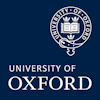
|
Online, Online, Oxfordshire, N/A, United Kingdom of Great Britain and Northern Ireland — University of Oxford
|

|
Wivenhoe Park, Colchester, Essex, CO4 3SQ, United Kingdom of Great Britain and Northern Ireland — University of Essex
|

|
East Road, Cambridge, Cambridgeshire, CB11PT, United Kingdom of Great Britain and Northern Ireland — Anglia Ruskin University
|

|
Wivenhoe Park, Colchester, Essex, CO4 3SQ, United Kingdom of Great Britain and Northern Ireland — University of Essex
|
|
|
|
| |
| |
| |
| |
| |
|
|
|
|
|
|
|